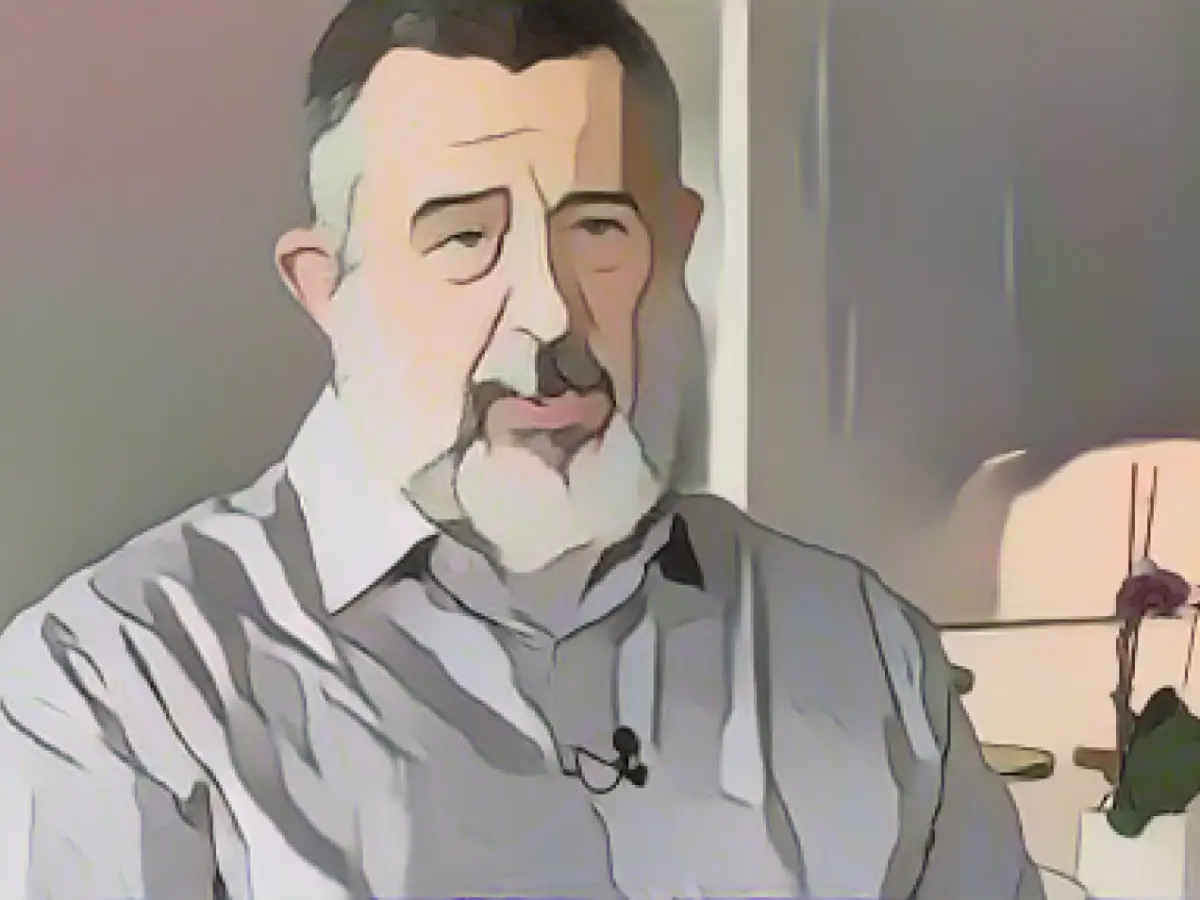Terrorism - Constitution protectors: We must not allow ourselves to be intimidated
Thuringia's President of the Office for the Protection of the Constitution, Stephan Kramer, has emphasized not to panic, even in the face of a growing threat of Islamist attacks. "The danger is immanent, it is very high and is becoming more and more concrete," said Kramer in an interview with Deutschlandfunk radio on Friday. He commented on the danger of attacks by Islamist Hamas in Europe and the recent arrests of suspected Hamas members in Berlin. At the same time, he emphasized: "What we must not do now is hide in the basement, let ourselves be intimidated, because then we will achieve exactly what the terrorists want at the moment."
When asked whether he could recommend that Jewish symbols be worn visibly everywhere in Germany at the moment, Kramer replied: "Whether they should be worn visibly in individual cases is a lengthy discussion that we have also had before. Everyone has to decide that for themselves." Jews should continue to visit their communities and celebrate Hanukkah. Even though he sees Christmas markets as a possible target for attacks, he does not advise against visiting them. There are security concepts and the security authorities are doing their utmost.
Banning terrorist groups is one way of taking action against Hamas, Kramer continued. "But it's also about using political education and soft factors - not so much about repression - to create a climate in which these groups can't grow." Even if it now seems too late for these measures, they should be maintained. "Because the worst thing that can happen to us now is that Muslims who have not previously been involved in radicalization may jump on this bandwagon out of frustration, out of emotionalization, and only now become radicalized and basically move even more into this camp."
The Federal Public Prosecutor's Office announced on Thursday that four suspected members of Hamas had been arrested in Berlin and the Netherlands. They are suspected of being members of a foreign terrorist organization, according to the prosecution. Specifically, it is about weapons that were to be kept ready for possible attacks on Jewish institutions in Europe.
From spring 2023 at the latest, one of the defendants based in Berlin was involved in locating an underground depot with weapons in Europe on behalf of Hamas, which the organization had set up there in the past. There is said to be no direct connection with the Hamas attack on Israel on October 7.
Before becoming President of the Office for the Protection of the Constitution in Thuringia, Kramer was Secretary General of the Central Council of Jews.
DLF interview with Kramer
Read also:
- A clan member is punished here
- Traffic lawyer warns: Don't talk to the police!
- Will he be convicted as Jutta's murderer after 37 years?
- He also wanted to kill his cousin
- Despite the increasing threat of Islamist attacks in Germany, particularly from groups like Hamas, Thuringia's President of the Office for the Protection of the Constitution, Stephan Kramer, advises against letting fear deter us from living our lives normally.
- Germany's federal authorities have taken action against terrorism by arresting four suspected Hamas members in Berlin and the Netherlands, accused of preparing attacks on Jewish institutions across Europe.
- In Thuringia, Stephan Kramer, who previously served as Secretary General of the Central Council of Jews, emphasizes that combating terrorism involves more than just banning organizations; soft factors and political education are also crucial in preventing radicalization.
- The feared spread of extremism in Europe necessitates ongoing efforts to maintain the climate that discourages radical groups like Hamas, even as events such as the recent arrests in Berlin and Berlin-based planning for weapons caches demonstrate the constant threat posed by terrorist organizations.
- In his interview with Deutschlandfunk radio, Stephan Kramer, now President of the Office for the Protection of the Constitution in Thuringia, discussed the challenges of balancing security measures with maintaining a sense of normalcy in living, especially during times of heightened terrorism concerns, such as those stemming from Islamist groups like Hamas operating in Europe.
Source: www.stern.de








